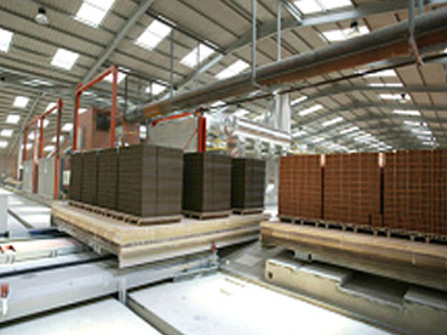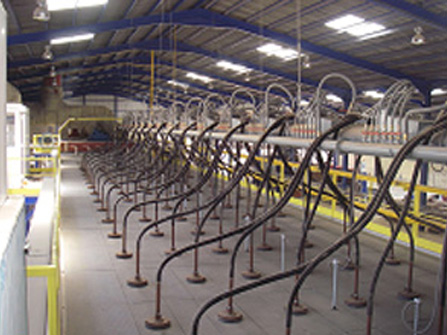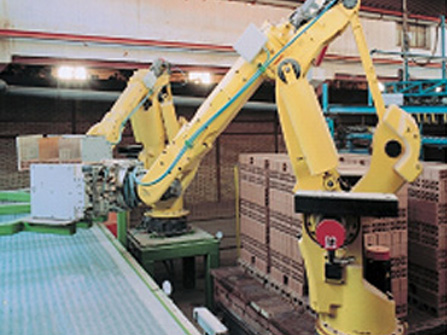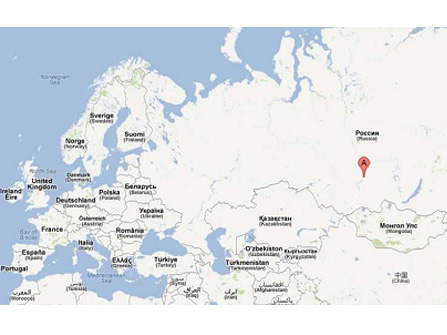Meldungen
New project in Russia (28.06.2012)
BERALMAR has been assigned a new engineering project to build a new factory in Krasnoyarsk (Siberia, Russia). The plant, owned by major local industrial group ARBAN, will have a daily production of 200 tons of ceramic blocks.
Specifically, BERALMAR is contributing a PRESTHERMIC tunnel kiln equipped with a PROMATIC pet coke firing system, a LLEVANT green kiln load dryer and all the factory’s automation systems for cutting, transporting drying and kiln cars and stacking and unstacking them.
Petroleum coke is the only fuel used in the kiln and in the whole factory. The LLEVANT dryer uses heat recovered from the kiln as its sole source of heat, so the factory’s power consumption will be extremely low.
The great advantages of the green load dryers are:
+ info:
Specifically, BERALMAR is contributing a PRESTHERMIC tunnel kiln equipped with a PROMATIC pet coke firing system, a LLEVANT green kiln load dryer and all the factory’s automation systems for cutting, transporting drying and kiln cars and stacking and unstacking them.
Petroleum coke is the only fuel used in the kiln and in the whole factory. The LLEVANT dryer uses heat recovered from the kiln as its sole source of heat, so the factory’s power consumption will be extremely low.
The great advantages of the green load dryers are:
- Moderate investment in automation equipment, since the process only calls for stacking the bricks on the cars immediately after moulding and unstacking them after firing.
- High energy efficiency. Since the dryer works 24 hours per day, 7 days a week, heat is recovered from the kiln continually. The cars also take less than a minute to exit the dryer and enter the kiln, preventing the reabsorption of moisture typical in other dryers, eliminating the need for a pre-kiln.
- Reduced downtime and maintenance. The automation elements are usually to blame for most downtime, a problem that is minimized by the reduced number of automation equipment in this type of dryer.
- Easy switch in production volume. Since the dryer and kiln operate continuously, production changes are as simple as increasing or decreasing the speed of cars, a task which is much simpler than with other types of dryers, where production changes in the dryer and the kiln are different operations to be carried out separately.
- Less manpower. The simplicity of these facilities entails less need for human resources, due to the smaller number of equipment to maintain and the fact that the dryer and kiln operate as a single unit.
+ info:







